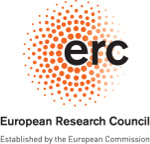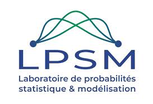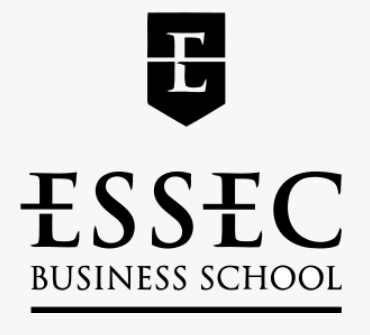RESEARCH SCHOOL
Bayes@CIRM
Autumn school in Bayesian Statistics
École d’automne en statistique bayésienne
30 October – 3 November, 2023
Scientific Committee
Comité scientifique
Florence Forbes (Centre INRIA de l’Université Grenoble Alpes)
Sylvia Frühwirth-Schnatter (Vienna University of Economics and Business)
Olivier Gimenez (CEFE Montpellier)
Éric Parent (AgroParisTech)
Igor Pruenster (Boccoli University)
Christian Robert (Université Paris Dauphine-PSL)
Judith Rousseau (Université Paris Dauphine-PSL)
Organizing Committee
Comité d’organisation
Sophie Ancelet (IRSN, Université Paris-Saclay)
Julyan Arbel (Centre INRIA de l’Université Grenoble Alpes)
Rémi Bardenet (Université de Lille)
Anna Bonnet (Sorbonne Université)
Marie-Pierre Étienne (Université Rennes)
Sarah Filippi (Imperial College London)
Pierre Jacob (ESSEC Business School)
Guillaume Kon Kam King (INRAE Paris-Saclay)
Robin Ryder (Université Paris Dauphine-PSL)
Thanks to recent methodological and theoretical advances, to the advent of large data sets, and to the development of ever more powerful computational schemes, Bayesian statistics have become the powerhorse of many real-world quantitative problems. The Bayesian approach is common and well accepted in areas as diverse as Genetics, Astrophysics, Linguistics, Economics, Climate sciences, etc. Bayesian methods allow for robust quantification of uncertainty of statistical inference, by computing or approximating the posterior distribution of parameters of interest in a stochastic model. They are especially attractive for complex problems where defining a prior distribution allows to add structure to parameters of large dimension, either by eliciting prior expertise on the stochastic process at hand or by using generic modelling tools such as Gaussian processes.
The objective of this autumn school is to provide a comprehensive overview of Bayesian methods for complex settings: modelling techniques, computational advances, theoretical guarantees and practical implementation. A specific focus will be given on challenging applications to foster collaborations with domain experts, to identify relevant objectives and increase the impacts of all designed algorithms and presented solutions during the week.
Grâce à des avancées méthodologiques et théoriques récentes, à l’arrivée de données massives, et au développement de schémas numériques de plus en plus puissants, la statistique bayésienne est devenue un outil essentiel pour de nombreux problèmes quantitatifs réels. L’approche bayésienne est bien acceptée et communément utilisée dans des domaines d’application aussi divers que la génétique, la linguistique, l’astrophysique, l’économie, les sciences du climat, etc. Les méthodes bayésiennes permettent une quantification robuste de l’incertitude d’une inférence statistique, en calculant ou en approchant la loi a posteriori des paramètres d’un modèle stochastique. Elles sont particulièrement attrayantes pour des problèmes complexes, dans lesquels la définition d’une loi a priori permet d’ajouter de la structure à des paramètres de grande dimension, soit en utilisant une expertise a priori sur le processus stochastique sous-jacent, soit via des outils génériques comme les processus gaussiens.
L’objectif de cette école d’automne est de donner une vue d’ensemble des méthodes bayésiennes dans des cadres complexes : techniques de modélisation, avancées computationnelles, garanties théoriques, et implémentation en pratique. Une attention particulière sera accordée à des applications stimulantes afin de développer des collaborations avec des experts d’autres domaines, d’identifier les objectifs pertinents, et d’augmenter l’impact des algorithmes et solutions présentés au cours de la semaine.
MASTER CLASSES (2 x 1h 30 each)
Nicolas Chopin (ENSAE Paris) An introduction to state-space models, particle filters, and Sequential Monte Carlo samplers
Silvia Chiappa (DeepMind London) Bayesian causal inference
TUTORIALS
Gabriel Cardoso (Télécom SudParis) and Yazid Janati El Idrissi (Télécom SudParis) Bayesian Statistics with Python
INVITED SPEAKERS (1H)
Marta Catalano (University of Warwick) Merging rate of opinions via optimal transport on random measures
Jean-Michel Marin (Université de Montpellier) Goodness of Fit for Bayesian Generative Models
Fabrizia Mealli (University of Florence) Bayesian Causal Inference: A Potential Outcome Perspective with Applications to Intermediate Variables
CONTRIBUTED TALK
Davide Agnoletto (University of Padua) Bayesian inference for generalized linear models via quasi-posteriors
Filippo Ascolani (Bocconi University) Complexity of Gibbs samplers through Bayesian asymptotics
Joshua Bon (Université Paris Dauphine-PSL) Bayesian score calibration for approximate models
Elena Bortolato (University of Padua) Coupling MCMC algorithms on submanifolds
Francesca Romana Crucinio (ENSAE Paris) Optimal Scaling Results for a Wide Class of Proximal MALA Algorithms
Claudio Del Sole (Bocconi University) Hierarchically dependent mixture hazard rates for modelling competing risks
Jacopo Iollo (INRIA Université Grenoble Alpes) Tempered sequential Monte Carlo for Bayesian experimental design via stochastic optimization
Sylvain Le Corff (Sorbonne Université) Monte Carlo guided Diffusion for Bayesian linear inverse problems
Thibaut Lemoine (Université de Lille) Monte Carlo integration on complex manifolds
Liam Llamazares Elias (University of Edinburgh) Penalizedcomplexitypriorsforstochasticpartialdifferentialequations
Anna Menacher (University of Oxford) Scalar-on-image regression with a relaxed Gaussian process prior
Felipe Uribe (LUT University) Towards dimension reduction of Bayesian inverse problems with neural network priors
Mengyan Zhang (University of Oxford) Bayesian optimisation with aggregated feedback










